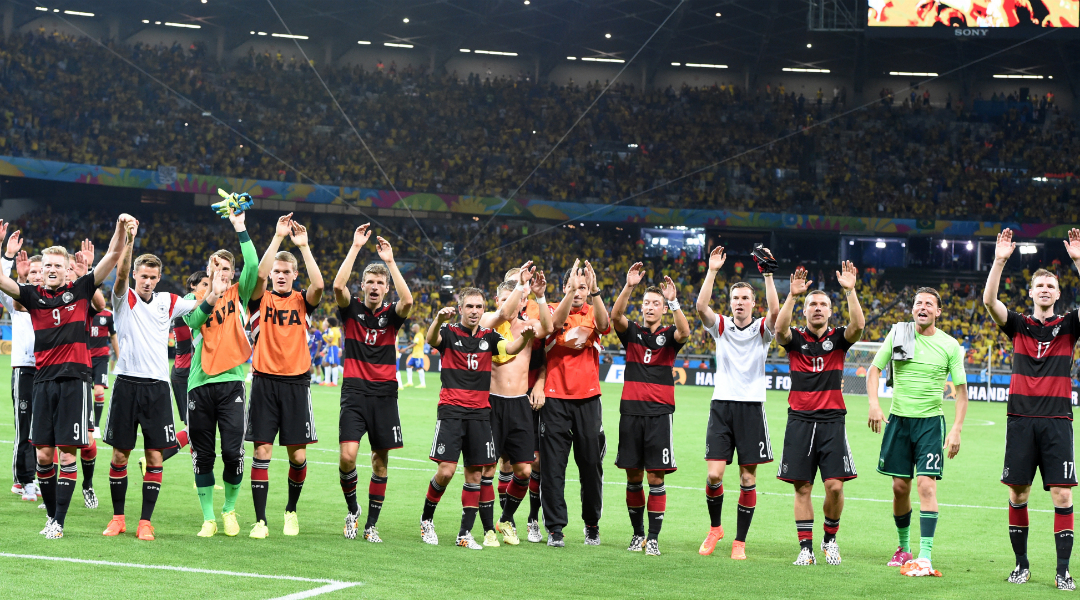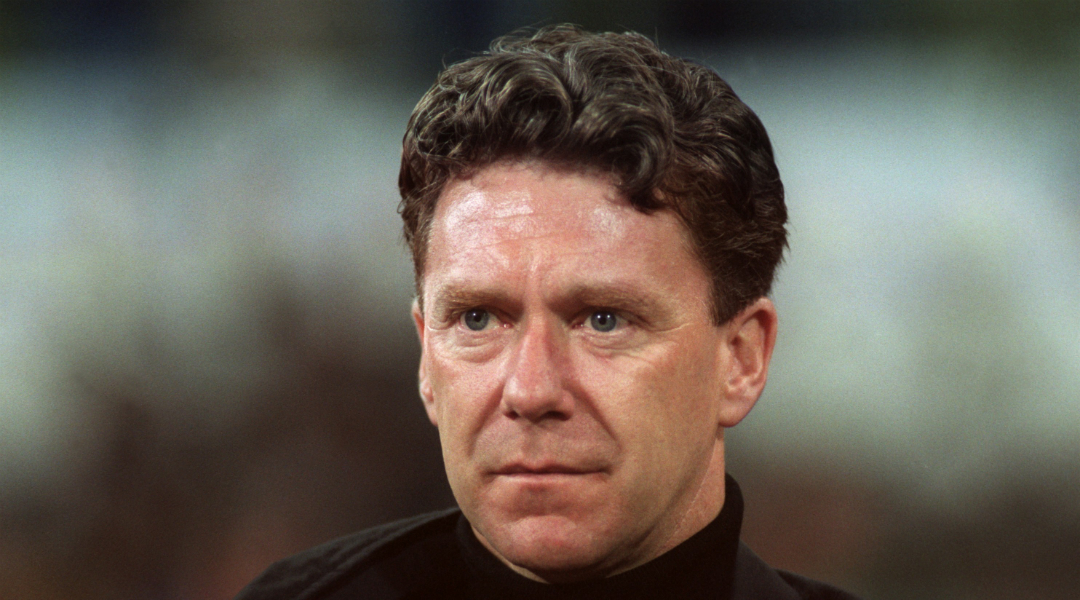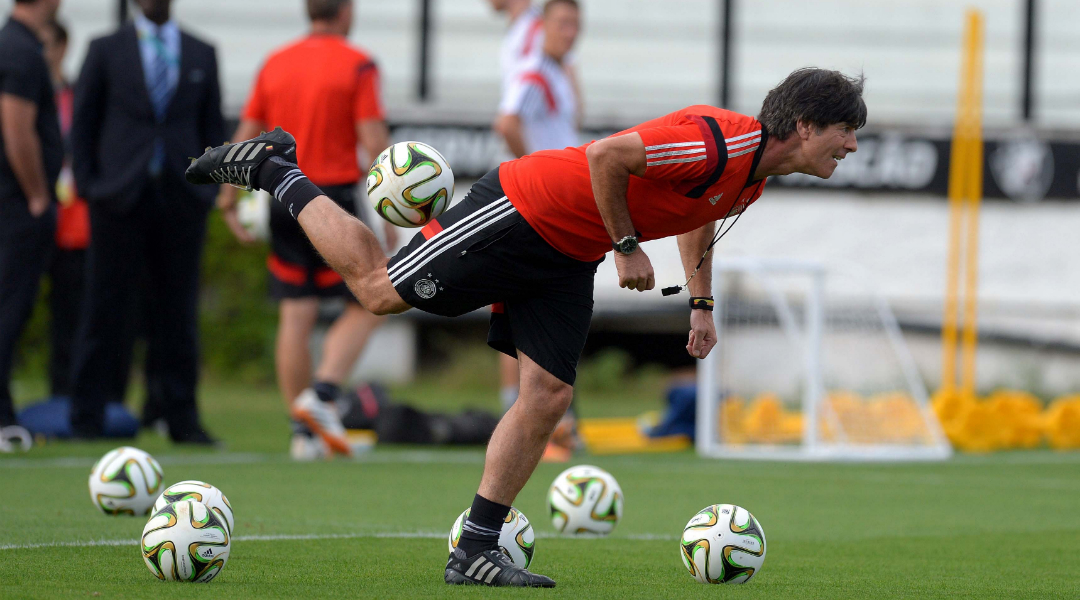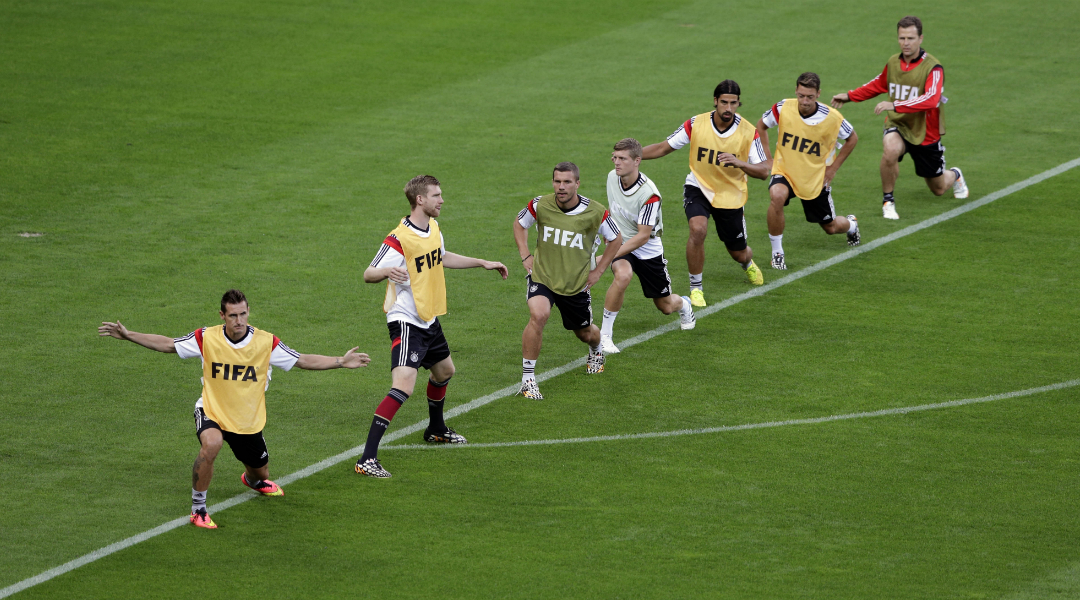Woodcock on the regeneration of Germany - and what England can learn from it
Former Arsenal, Forest and England striker turned Bundesliga star and TV expert explains what Germany did - and what England might consider...

It says much for the changing face of football that the majority of England fans will be openly harbouring hopes of a German victory at the Maracana. That may be because they’re playing Argentina, because let’s face it, it truly would take something extraordinary for the English to throw their weight behind them, but it might also be because German football represents everything to which the English game should be aspiring.
The majority of Joachim Low’s side are so young that they were still at primary school when England demolished Germany 5-1 in Munich in 2001, but they’re the ones that are now benefiting from the lessons heeded during that dark, dark time for the German national team.
It’s worth remembering that during that period, 13 long years ago, England weren’t simply Germany’s equal but, if results provide any kind of valid indication, their betters. That 5-1 win in Munich followed a famous 1-0 defeat of the same opposition at Euro 2000 – a tournament which represented the nadir of the German game.
Some four years after that win in Charleroi, England and an 18-year-old Wayne Rooney were one of the standout sides at Euro 2004. Germany, in contrast, looked stale, tired and a nation on the wane.
Get FourFourTwo Newsletter
The best features, fun and footballing quizzes, straight to your inbox every week.
Not anymore. Since 2006, the Fatherland has been a country re-born – one that has produced some of the most gifted individuals in the global game but one that has put the team above all else.
Keep it simple, stupid
It's been a fascinating improvement to watch for one of English football’s finest exports to the Bundesliga (and German TV studios), and he isn’t surprised by the transformation undergone by his adopted country.
Tony Woodcock – who won the European Cup with Nottingham Forest in 1979 and was part of the England squad at the 1982 World Cup in Spain – tells FourFourTwo that the revolution wrought by Low, and before him Jurgen Klinsmann, would have won the approval of Woodcock's legendary former boss Brian Clough.
“Brian always said that the hardest thing in football is to keep the game simple – but that’s exactly what Germany did against Brazil,” he says. “Germany passed and moved in Belo Horizonte, that’s all they did. The Brazilians simply couldn’t handle it.”

So how did a country that was seemingly on its knees at Euro 2000 and relying on an autobahn-load of 30 somethings at Euro 2004 manage to drag itself up, dust itself off and not simply remodel itself but leave most of Europe, nay the world, standing?
“People always ask me the same thing every time Germany reach a World Cup final or the last four of a major tournament – which happens pretty much every two years,” grins Woodcock.
“The answer is that they were big and bold enough to take a long hard look at themselves, get great people involved and then, from 2006, completely change the way that the team plays.
“They work so hard, it’s really intensive, a lot of speed, a lot of running. Since 2006 they’ve moved on and this has progressed over time. There’s no great secret.”
Coaching the coaches
Woodcock points to the example of the stringent requirements required for football coaches in Germany as one of the primary examples of why the country is so far ahead of a great many football superpowers.
And England too. Figures compiled by UEFA in 2013 suggest that Germany has as many as 5,500 elite coaches – England, meanwhile, has just 1,161. Woodcock is in no doubt that better teachers make for better players.
“You only have to look at the education these young German players receive,” he says. “I don’t know the statistics but when I was playing in Germany you couldn’t coach a club without a coaching licence.
“If you were an international footballer you were given the B licence, you then had to do your A Licence over six weeks and then you had to do work experience and another six-month course.

“It’s a whole learning process. In recent years there have been ex-professionals in the setup and then you’ve got people from different walks of life coming in. They’ve even cut down on that. Some of the students that were academically good have had to show that they have the technical skills to coach and play the game.
“A lot of those guys got sifted out. You’ve suddenly got a really great crop of people who aren’t just academically gifted but also have the skills to play at a high level too.
“When you have that, coupled with a genuine interest and desire to make the German national team successful, then you’re going to succeed more times than you fail.”
Stars and pressure
Clough himself was a master at getting the maximum out of individuals, who together made his team far more than the sum of its parts. Arguably, Low is doing the same, with Germany lacking the individual stars like Argentina's Lionel Messi, Colombia's James Rodriguez, and Brazil – who fell apart without Neymar.
That said, any member of Germany’s midfield would walk into any other side in this World Cup – with the possible exception of Spain. But it’s not just the skills and ability that sets them apart. It’s their attitude.
“Germany are used to getting to quarter-finals and semi-finals and finals,” says Woodcock. “The minimum is usually to get to the final. There’s that expectation but the German players can live with that.

“England have flopped over the years. I thought, this year, that there was probably less pressure on the England players to do well, the expectations weren’t there. We’ve had the so-called Golden Generation, all these great players from the Premier League, but this year that wasn’t there. We were hoping that the younger guys would play fearlessly but that didn’t really materialise.
“Unfortunately, that fire wasn’t there. It’s not just England, there are a few nations out there who will be taking a look at Germany and seeing how far they’ve come in a relatively short space of time.
“A lot of these guys have already got 60, 80, 100 caps. A lot of them are closer to 25 years old than 30. There’s a lot that teams can learn from Germany.”
England's fabled win in Munich 13 years ago heralded little more than another false dawn. In contrast, a win for Germany against Argentina could be the start of something very special indeed.
